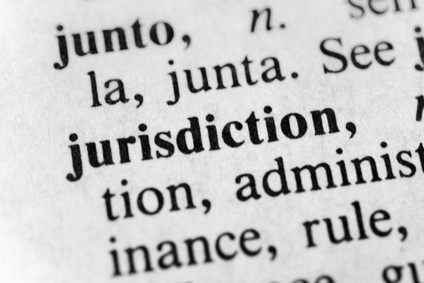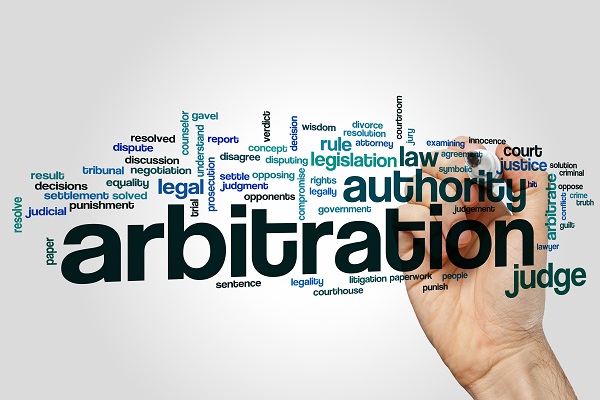The U.S. Court of Appeals for the Seventh Circuit held that a plaintiff’s oral testimony that a $100 payment was demanded of her in violation of the federal Fair Debt Collection Practices Act (FDCPA) was insufficient to withstand summary judgment where the debt collector defendant produced documentary evidence to support its testimony that no such demand was made. Accordingly, the Seventh Circuit affirmed the ruling of the trial court granting summary judgment in favor of the defendant. A copy of the opinion in Duncan v. Asset Recovery Specialists, Inc. is available at: Link to Opinion. After the plaintiff fell behind on her…
Posts tagged as “Debt Collection”
The Supreme Court of Missouri recently affirmed the denial of a lender’s motion to compel arbitration of a consumer’s putative class claims because the arbitration provision at issue designated the use of a specific arbitrator which was no longer available to handle creditor claims. A copy of the opinion in A-1 Premium Acceptance, Inc. v. Hunter is available at: Link to Opinion. Following the borrower’s default under a small personal loan, the lender brought an action in Missouri state court for collection of the debt. The borrower filed counterclaims against the lender for alleged violations of the Missouri consumer protection statute and requested…
The U.S. Court of Appeals for the Eighth Circuit recently held that a consumer waived his right under the federal Fair Debt Collection Practices Act (FDCPA) to cease further communications by calling the debt collector and asking questions about the underlying debt. A copy of the opinion in Scheffler v. Gurstel Chargo, P.A. is available at: Link to Opinion. A law firm obtained a judgment against a debtor in connection with a credit card debt. The debtor was a former debt collector and had litigated a number of FDCPA claims against other debt collectors. The law firm mailed a garnishment notice to the debtor’s credit…
7th Cir. Holds Plaintiff’s Settlement of Parallel Claim Against Another Defendant Mooted FDCPA Claim

The U.S. Court of Appeals for the Seventh Circuit recently reversed a judgment against a debt collector, finding that the plaintiff’s settlement with the creditor for the same indivisible injury mooted the plaintiff’s federal Fair Debt Collection Practices Act (FDCPA) claims for statutory damages, attorneys’ fees, and costs against the debt collector. A copy of the decision in Portalatin v. Blatt, Hasenmiller, Leibsker & Moore, LLC is available at: Link to Opinion. As you may recall, the FDCPA requires a debt collector in the circumstances relevant to this appeal to file a complaint “only in the judicial district or similar legal…
The U.S. Court of Appeals for the Ninth Circuit recently held that the plaintiff carries the burden of proving the debt collector’s net worth to obtain statutory damages in a class action under the federal Fair Debt Collection Practices Act (FDCPA), 15 U.S.C. § 1692, et seq. A copy of the opinion in Tourgeman v. Nelson & Kennard is available at: Link to Opinion. A consumer financed the purchase of a computer through an installment loan. When the consumer defaulted, the creditor charged off the account and sold the debt to a third party. The third party referred the account to a law…
The U.S. Court of Appeals for the Seventh Circuit recently held that service of a motion for default judgment directly upon a plaintiff consumer known to be represented by counsel did not violate the federal Fair Debt Collection Practices Act, where the plaintiff’s attorney had yet to file a formal appearance. In so ruling, the Seventh Circuit reversed the trial court’s judgment in favor of the consumer because the state procedural rule at issue required the motion to be served directly upon the consumer, thus triggering the safe harbor provision of subsection 1692c(a)(2) of the FDCPA, which prohibits direct contact with…
The U.S. Court of Appeals for the Seventh Circuit held that a mortgage field servicing company’s actions were too attenuated from its mortgage servicer client’s own debt collection efforts to be considered a debt collector under the federal Fair Debt Collection Practices Act (FDCPA). Accordingly, the Seventh Circuit affirmed the ruling of the trial court granting the company’s motion for summary judgment. A copy of the opinion in Schlaf v. Safeguard Property, LLC is available at: Link to Opinion. The plaintiff homeowners owned property that was subject to an FHA-insured mortgage loan serviced by a mortgage loan servicer. The plaintiffs defaulted…
On Aug. 22, the California legislature passed Assembly Bill 1526, relating to the collection of debt that is beyond the statute of limitations for bringing legal action. Since 2014, debt buyers collecting from California residents have been required by Cal Civ Code § 1788.52(d)(2) to provide one of two notices, as applicable, when a debt is “time-barred.” The new legislation creates the same requirement for debt collectors, making it a violation for a debt collector to send a collection letter to a consumer on a time-barred debt without providing the debtor with one of the following written notices, depending on…
On Aug. 14, Gov. Bruce Rauner signed into law the Illinois Career Preservation and Student Loan Repayment Act. The act moved through the legislature as Senate Bill 2439 and passed unanimously in the Senate and by a vote of 104-3 in the House. The act provides that Illinois government agencies and boards can no longer deny, refuse to renew, suspend, revoke or take any other disciplinary action related to a person’s professional or occupational license because of a delinquency or default on a student loan guaranteed by the Illinois Student Assistance Commission or any other Illinois state agency. The legislation…
With a tip of the cap to Popeye the Sailor Man, the Third Circuit has decided that a purchaser of defaulted debt is a “debt collector” under the federal Fair Debt Collection Practices Act. A copy of the opinion in Tepper v. Amos Fin., LLC is available here: Link to Opinion. The borrowers, a husband and wife, had a home equity line of credit with a bank secured by a mortgage on their home. They made timely payments until receiving notice that the bank was closing. The bank was taken over by the FDIC and the loan was eventually sold to a…
In a case of first impression, the Arizona Supreme Court recently addressed the question of when the statute of limitations commences on credit card debt that is subject to an optional acceleration clause. A copy of the opinion in Mertola, LLC v. Santos is available at: Link to Opinion. The consumer obtained a credit card subject to an agreement that provided if he missed any payment the issuer could declare the balance “immediately due and payable.” The consumer missed a payment in February 2008, but subsequently made a $50 payment, which was less than the minimum payment due, in August 2008. No notice…
On July 27, Gov. Bruce Rauner approved an amendment to Illinois’ Student Loan Servicing Rights Act. The legislation, HB 4397, passed unanimously in both chambers and becomes effective Dec. 31, 2018. The legislation amends the definition of “student loan servicer” in the Student Loan Servicing Rights Act by excluding “a law firm or licensed attorney that is collecting post-default debt.” The Act already excluded licensed collection agencies collecting on post-default debt. The Student Loan Servicing Rights Act, which becomes effective on the same date, requires licensing of student loan servicers and includes a “Student Loan Bill of Rights” that imposes…










